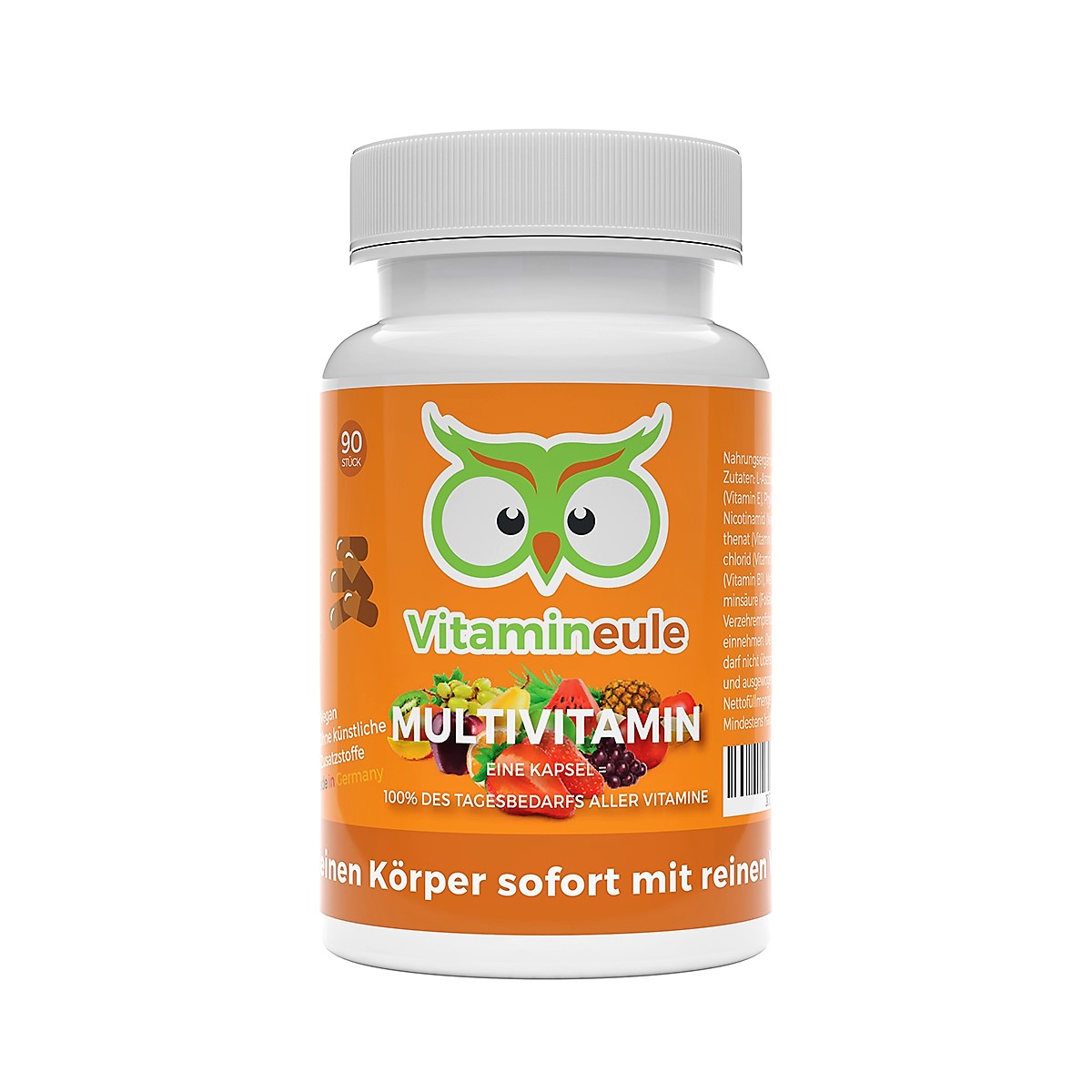

Team Vitamineule
Questions, wishes or suggestions? Simply contact us by e-mail or on Facebook.
You have probably heard that there are two types of vitamins: water-soluble and fat-soluble vitamins. In this blog post we will explain the exact differences and what they mean for your body.
1. fat-soluble vitamins
Recording
The following vitamins belong to the group of fat-soluble vitamins / depot vitamins:
- vitamin E
In contrast to water-soluble vitamins, fat-soluble vitamins can be stored in the body and differ in the way they are absorbed, processed and used. They are absorbed in the intestine together with fats, so the daily intake of vitamins can be increased with a simultaneous intake of fats.
Storage of fat-soluble vitamins
The body can store fat-soluble vitamins in large quantities in different places. Important stores include the liver and fatty tissue. Due to their storage capacity, a steady supply is not necessary. However, if too much is administered in the form of supplements, this can lead to hypervitaminosis (overdose) of fat-soluble vitamins.
Function / excretion
The function of fat-soluble vitamins is mainly to stimulate the production of certain proteins. On our product detail pages you will find detailed explanations of the function of the individual vitamins. Fat-soluble vitamins are excreted through the intestines.
Overdose / hypervitaminosis with fat-soluble vitamins
If the body is supplied with too large a quantity of fat-soluble vitamins, overdosing (hypervitaminosis) may occur. Depending on the vitamin, these can resolve different symptoms such as nausea, migraine or hair loss. As vitamin k is only stored by the body in small quantities and has only a low toxic effect, this is the exception here, as hypervitaminosis with vitamin K is unlikely. Acute hypervitaminosis occurs acutely through the 50-100 times daily dose or chronically through the long-term intake of excessive doses (e.g. in the case of vitamin A through the 5 times daily dose over a longer period of time). With vitamin A and D these overdoses occur much more frequently than with vitamin E. In the case of vitamin A, nutritional hypervitaminosis is also only possible if liver or cod liver oil is consumed.
2. water-soluble vitamins
Water-soluble vitamins: InclusionWater-soluble vitamins include
- vitamin B1
- vitamin B2
- vitamin B3
- vitamin B5
- vitamin B6
- Biotin
- Folic acid
- vitamin C
- vitamin B12
These vitamins are taken up with the help of so-called carrier proteins or through various receptors. Vitamin B2 is passively transported - the absorption of vitamins B1, B12 and C, on the other hand, is active.
Water-soluble vitamins: Storage
In contrast to fat-soluble vitamins, water-soluble vitamins cannot be stored very effectively. Therefore, water-soluble vitamins can usually not be overdosed. Nevertheless, an overdose of water-soluble vitamins can cause complaints in the human body. Too high doses of vitamin C, for example, can stress and damage the kidneys in the long term. An exception to the storage of water-soluble vitamins is vitamin B12. This is stored by the body in the long term. You can find more information in our blog post on the subject of vitamin B12 - effect, deficiency and food.
Water-soluble vitamins: Function / excretion
The functions of the individual vitamins can be read on the detailed pages of our products. The body excretes excess water-soluble vitamins with urine and stool. An overdose / hypervitaminosis is often only possible if the recommended daily doses of the individual vitamins are massively exceeded when taking food supplements. For this reason, you should always follow the manufacturer's recommendations for consumption.

Our recommendation:
Vitamineule® Multivitamin Capsules
In our online shop you will find our multivitamin capsules from Vitamineule®, which are completely free of artificial additives. A capsule covers your complete daily requirement of all fat-soluble and water-soluble vitamins. In the multivitamin capsules are all vitamins from A-Z contained. Each can contains 90 capsules. Besides fast & free shipping, we offer a voluntary six-month return guarantee for all products.
Conclusion
For the human body, both water-soluble and fat-soluble vitamins are absolutely essential, as it cannot produce them itself. You should make sure that you eat a balanced and healthy diet to completely cover your daily requirement of all vitamins. As a vitamin deficiency of fat-soluble vitamins is often only noticed after years, the deficiency is also only noticed later. Regular blood tests at the doctor's can reliably record all vitamin values. Irrespective of the result, we recommend having several tests carried out, as this allows a result to be obtained that is not dependent on the form of the day. With fat-soluble vitamins, we recommend that you pay close attention to the amount you take in order to avoid an overdose / hypervitaminosis.
